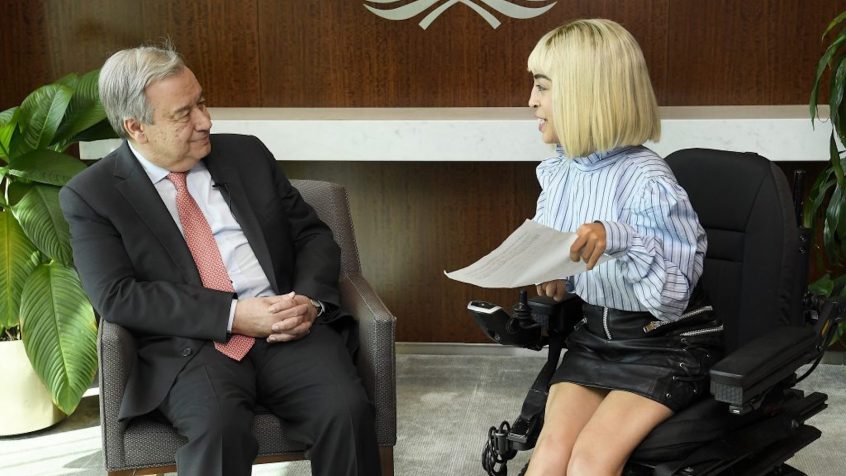
Protecting the rights of people with disabilities is everyone’s “moral obligation”
June 18, 2018
UN Secretary-General Antonio Guterres said on Tuesday it was a “moral imperative” to ensure and protect the rights of some 1.5 billion people around the world in accordance with the Convention on the Rights of Persons with Disabilities.
Addressing a conference of signatories to the treaty at UN Headquarters in New York, he said the treaty is one of the most widely ratified international human rights treaties, reaffirming the right of people with disabilities to be treated on an equal basis with all others.
“But signing and ratifying the Convention is not enough: implementation is essential,” Guterres said. “We need to organize society in such a way that all people, including people with disabilities, can freely exercise their rights.”
The Secretary-General stressed that countries’ application of the Convention in their development policies, investments and laws is “a crucial step in realizing the central commitment of the 2030 Agenda for Sustainable Development – leaving no one behind.”
“The contribution of 1.5 billion people cannot be ignored or discounted,” he said, noting that more needs to be done to ensure full inclusion of people with disabilities in society.
People with disabilities still often face blatant discrimination, stereotypes and a lack of respect for their fundamental human rights, with women and girls disproportionately affected.
“Every minute, more than 30 women are seriously injured or disabled during childbirth,” the UN Secretary-General detailed.
Furthermore, women and girls with disabilities face many barriers in accessing education, health services and jobs.
“Without women’s empowerment and gender equality, millions of women will continue to suffer double discrimination based on both gender and disability,” he added.
The Secretary-General stated the need for new approaches to working for and with people with disabilities, including integrating disability issues into national laws and development strategies.
“It is also crucial to continue and expand the work that UN agencies are doing to support governments and build their capacities on these issues,” he asserted, detailing the need to strengthen policy frameworks and laws on disability, in line with the Convention on Disability and the 2030 Agenda. He finally noted that the comprehensive review will look at all aspects of how the UN addresses disability, as well as inform the new UN Plan of Action and Accountability Framework, “helping us aim higher and deliver on our promises.”
Speaking in sign language through an interpreter, Colin Allen, president of the International Federation of Disabled People, emphasized the strength of collective efforts to achieve real, meaningful change.
“For the people in this room and for the more than a billion people that we represent, we are building a strong, solid foundation to move forward,” Allen said.
Catalina Devandas Aguilar, the UN Special Rapporteur on the Rights of Persons with Disabilities, said that while progress has been made, it has not reached everyone equally.
“There is a great demand for better and higher quality public interventions,” she said, adding that “only by working together can we achieve our common goal of leaving no one behind.”
“Together we can remove barriers and raise awareness so that people with disabilities can play a full role in all sectors of society all over the world,” she said.

